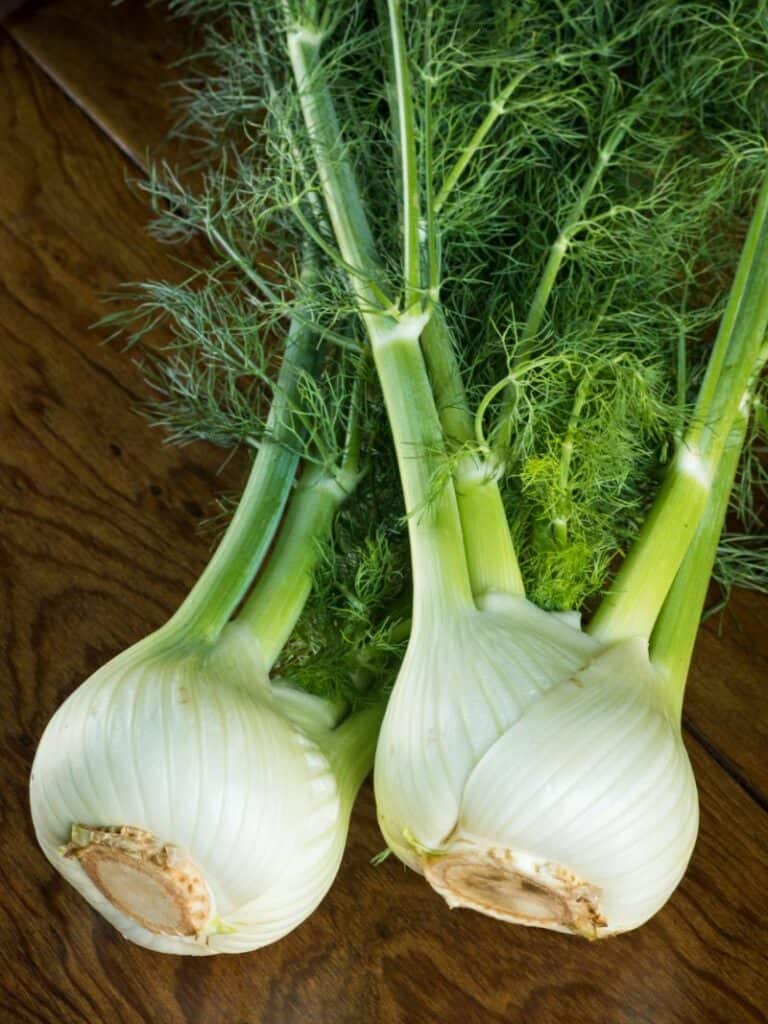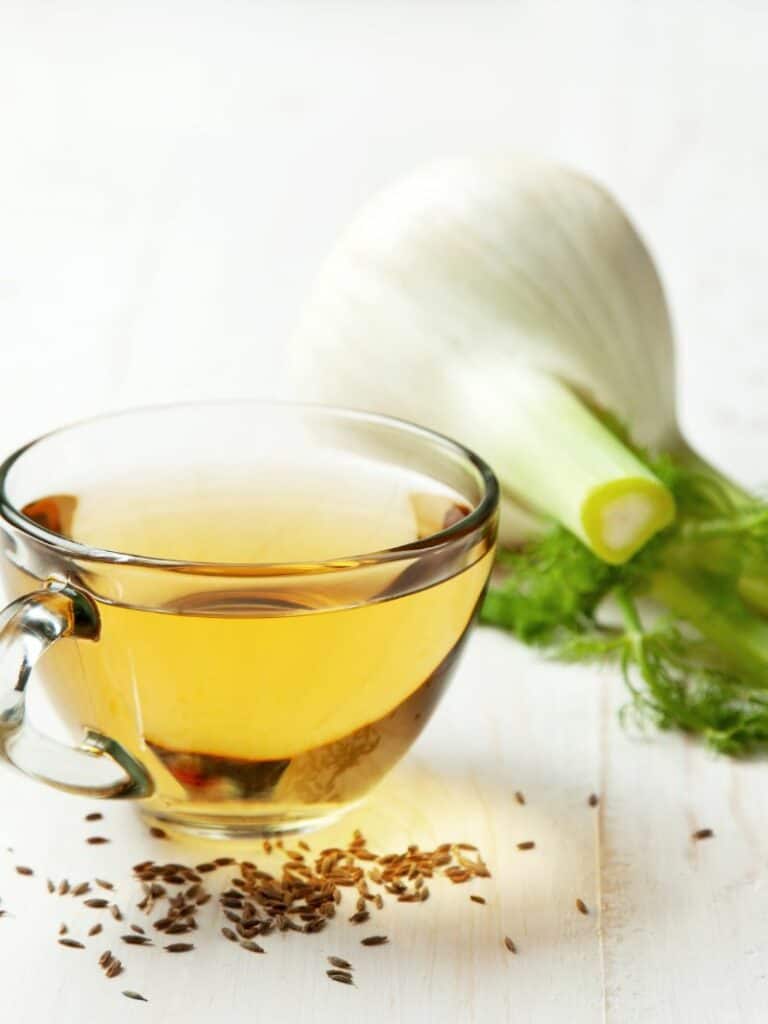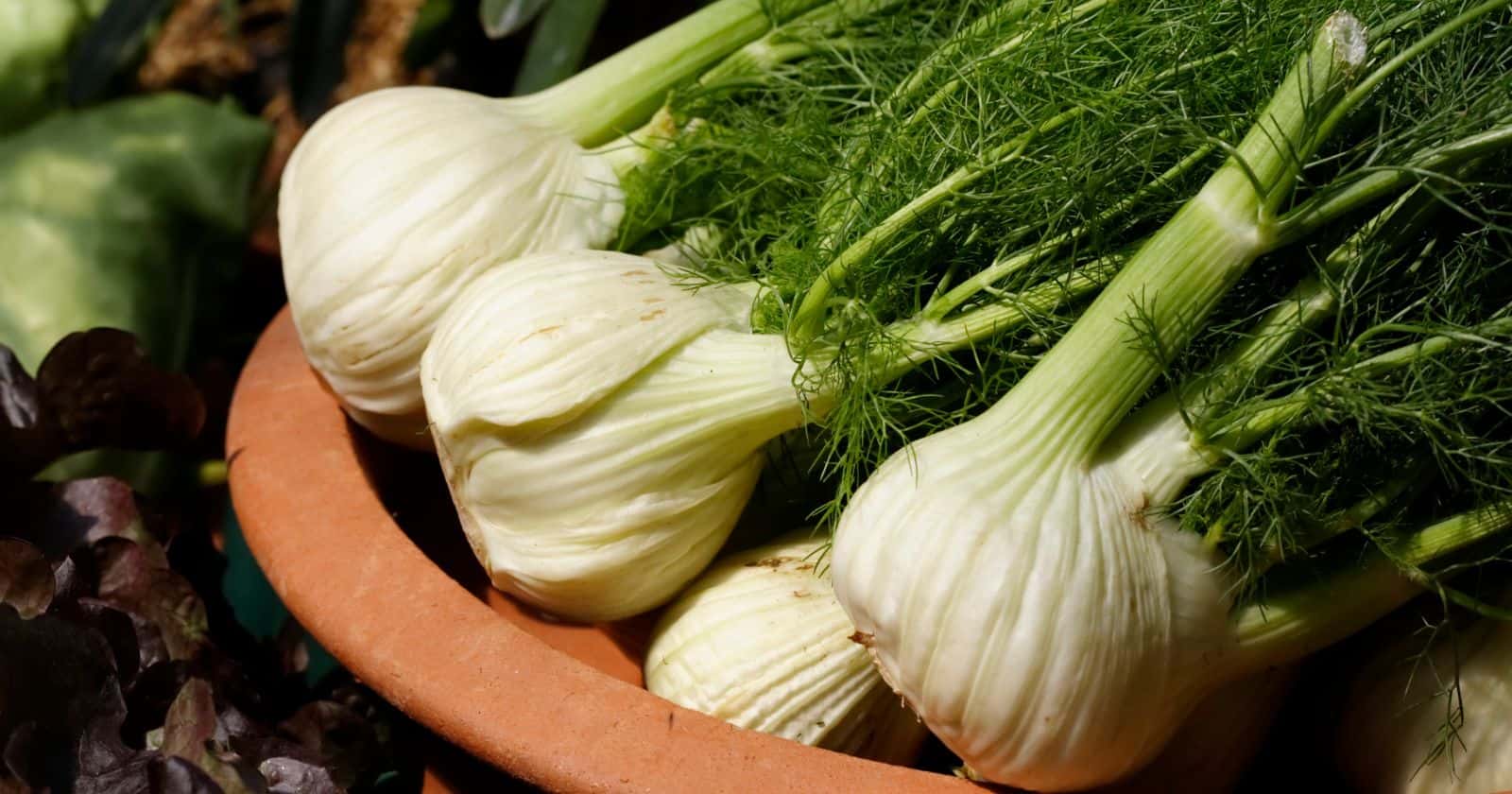Are you looking for a natural way to boost your digestive system and improve your overall health? Look no further than fennel!
If you’re tired of dealing with uncomfortable bloating, digestive issues, and sluggishness, fennel might be the answer you’ve been searching for.
Fennel is a herb that has been used for centuries in both cooking and herbal medicine. Its unique flavor profile is often described as sweet and anise-like, making it a staple in many Mediterranean dishes. But beyond its culinary uses, fennel is also packed with health benefits.
Studies have shown that fennel can aid digestion by reducing gut inflammation and relieving symptoms of bloating and gas. It also contains powerful antioxidants and anti-inflammatory properties that can help reduce the risk of chronic diseases like cancer and heart disease.
In this post, we’ll dive deeper into the many benefits of fennel and how you can incorporate it into your diet.
From fennel tea to roasted fennel dishes, we’ll provide plenty of delicious and easy ways to reap the rewards of this amazing herb. Get ready to discover the power of fennel!
What is Fennel?

Fennel is a bulbous vegetable with feathery leaves that belongs to the carrot family. It has a unique taste and scent that resembles anise, licorice, and celery, making it a popular ingredient in many cuisines worldwide.
Fennel originated in the Mediterranean region and has been used for culinary and medicinal purposes since ancient times. Let’s dive deeper into the specifics of this fascinating veggie.
Fennel in Folklore and Culture
Fennel has been associated with many cultural and folklore traditions throughout history. In Greek mythology, fennel was believed to have healing powers and was used to improve eyesight.
In ancient Egypt, fennel was used to ward off evil spirits and promote longevity. In medieval Europe, fennel was believed to bring good luck and protect against witchcraft. Today, fennel is still used in many cultural and religious rituals worldwide.
The Health Benefits of Fennel
Looking for a superfood that can provide various health benefits? Look no further than fennel!
Aid in Digestion
Fennel has been used for centuries to aid digestion. It contains compounds that can reduce inflammation in the bowels, ease bloating, and decrease the growth of bacteria that cause gas. Fennel tea is a popular way to soothe an upset stomach after a meal.
Reduce Inflammation
Fennel has anti-inflammatory properties that effectively reduce inflammation throughout the body. This includes inflammation that is associated with conditions such as arthritis and asthma.
Eating fennel regularly can help reduce the risk of chronic inflammation and related diseases.
Antioxidant Properties
Fennel contains powerful antioxidants that can help protect the body from oxidative stress. These antioxidants can neutralize free radicals that can damage cells, leading to chronic diseases.
Eating fennel regularly can help maintain optimal health and prevent diseases caused by oxidative stress.
Anti-Cancer Properties
Fennel has been shown to have anti-cancer properties that can help prevent the growth of cancer cells. Fennel contains compounds that can inhibit the growth of cancer cells and promote apoptosis, or programmed cell death, in cancer cells. Eating fennel regularly can be a natural way to protect against cancer.
Heart-Healthy Benefits
Fennel is a good source of fiber, potassium, and folate essential for heart health. Folate helps lower homocysteine levels, an amino acid that can damage blood vessels and increase the risk of heart disease.
Potassium helps regulate blood pressure, while fiber can help lower cholesterol levels. Eating fennel regularly can help maintain a healthy heart.
How to Incorporate Fennel into Your Diet
Looking for a healthy and flavorful way to add some extra nutrition to your meals? Look no further than fennel!
This versatile vegetable is packed with vitamins, minerals, and antioxidants, making it a great choice for anyone looking to boost their health.
But how can you incorporate fennel into your diet? Here are a few ideas to get you started:
Fennel Tea

One of the simplest ways to enjoy fennel is by steeping it in hot water to make tea. Fennel tea has a subtle licorice flavor and can help soothe digestion, making it a great choice after meals.
To make fennel tea, simply steep a handful of fennel seeds in hot water for a few minutes, then strain and enjoy.
Roasted Fennel Dishes
Roasting fennel brings out its natural sweetness and adds a delicious caramelized flavor to any dish.
To roast fennel, slice it into wedges, toss it with olive oil, salt, and pepper, and bake in a hot oven until tender and golden brown.
Roasted fennel can be served as a side dish, added to salads, or used as a topping for pizzas and flatbreads.
Fennel Salads
Fennel pairs well with other vegetables and fruits, making it a great salad addition. Mix thinly sliced fennel with arugula, sliced apples, and a simple vinaigrette for a refreshing and flavorful salad.
Or, use fennel as a base for a crunchy slaw, adding shredded carrot, cabbage, and a creamy dressing.
Fennel in Soups and Stews
Fennel is a popular ingredient in soups and stews, adding flavor and nutrients to any dish. Add chopped fennel to your favorite vegetable soup or use it as a base for a creamy, dairy-free soup.
Fennel also pairs well with seafood, so add it to a tomato-based fish stew or bouillabaisse for extra flavor.
Incorporating fennel into your diet is easy and delicious, so why not try it today? Fennel will become a staple in your kitchen with its many health benefits and versatile flavor.
How to choose and store fennel
Choosing the best fennel bulbs
To choose the perfect fennel bulb, look for firm bulbs that are young and have smooth, white skin. The bulb should also have tightly layered layers without any marks or bruises.
Here are some things to keep in mind when selecting your fennel:
- Look for round, plump bulbs.
- Choose bulbs that feel heavy for their size.
- Avoid bulbs with cracks or blemishes.
- Make sure the stalks are fresh and green.
- Use your senses to check for freshness: the fennel should have a sweet, anise scent and a crisp texture.
Storing Fresh Fennel
To store fresh fennel, cut off the stalks and store the bulbs in a plastic bag or an airtight container. Place the container in the refrigerator and use it within seven to ten days. Remember to remove any excess moisture before storing it to prevent mold growth.
If you want to store the stalks and fronds, store them in water on the kitchen counter or the fridge for a few days. Change the water regularly to keep the fennel fresh.
Freezing Fennel
To freeze fennel, chop the stalks and leaves and place them in an airtight container or freezer bag. You can also blanch the fennel before freezing for better results. Use the frozen fennel within four to six months for optimal quality.
Risks and Precautions: Safe Consumption Guidelines for Fennel
Is fennel safe to consume? Generally, yes. However, if you’re considering taking fennel supplements or extracts, there are some risks and precautions.
Let’s take a closer look:
Allergic Reactions
- Fennel may cause allergic reactions in some people.
- Symptoms may include difficulty breathing, chest pain, hives, rash, and swelling.
- If you experience any of these symptoms after consuming fennel, seek medical attention immediately.
Medication Interactions
- Fennel may interact with certain medications, such as blood thinners, estrogen-based drugs, and certain antidepressants.
- Talk to your healthcare provider before taking fennel supplements or extracts if you take any medications.
Safe Consumption Guidelines
- Fennel is generally safe when consumed in food amounts.
- When taking fennel supplements or extracts, stick to the recommended dosage on the product label.
- Avoid fennel if you have a bleeding disorder or hormone-sensitive condition such as breast cancer, uterine cancer, ovarian cancer, endometriosis, or uterine fibroids.
- Consult a healthcare provider before taking fennel supplements or extracts, particularly if you’re pregnant, breastfeeding, or have any medical conditions.
Fennel Substitutes
Fennel is a unique vegetable with many culinary uses, but what if you don’t have it on hand or don’t like its flavor?
Here are some fennel substitutes that can be used in its place:
- Anise: This herb has a similar flavor to fennel and can be used in equal amounts in most recipes.
- Caraway seeds: These have a slightly bitter, nutty flavor that can be used instead of fennel in savory dishes.
- Celery: While not exactly the same flavor, celery can provide a similar crunch and texture to fennel in salads or as a garnish.
- Dill: This herb has a slightly different flavor than fennel but can still be used in dishes that call for the vegetable.
- Cumin: This
spice has a warm, slightly earthy flavor that can be used instead of fennel if you don’t have any.
Just remember, each of these substitutes will have its own unique flavor and may not be a perfect match for fennel in every recipe. It’s always best to experiment and find what works best for your dish.





